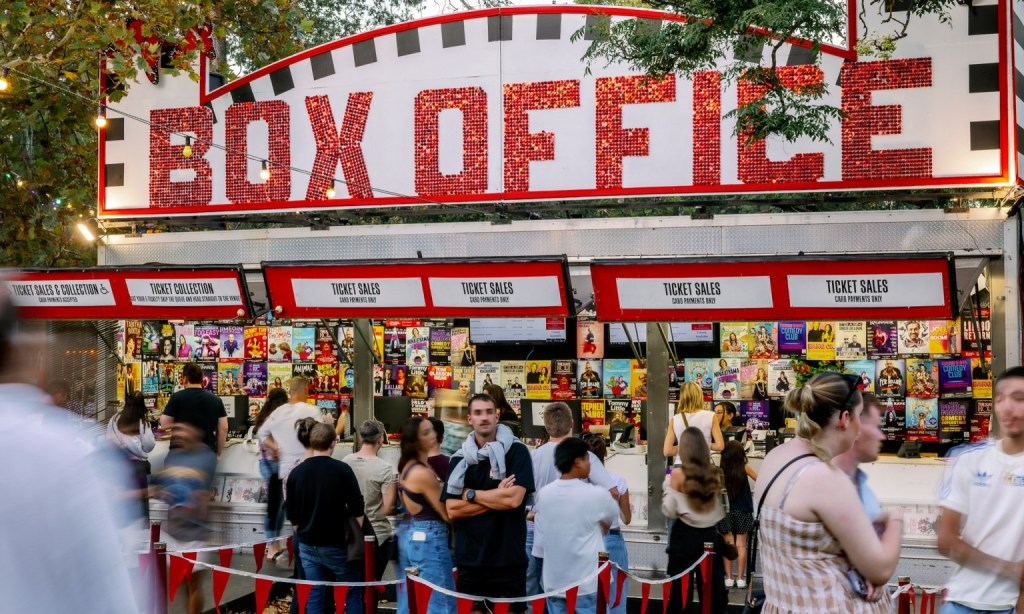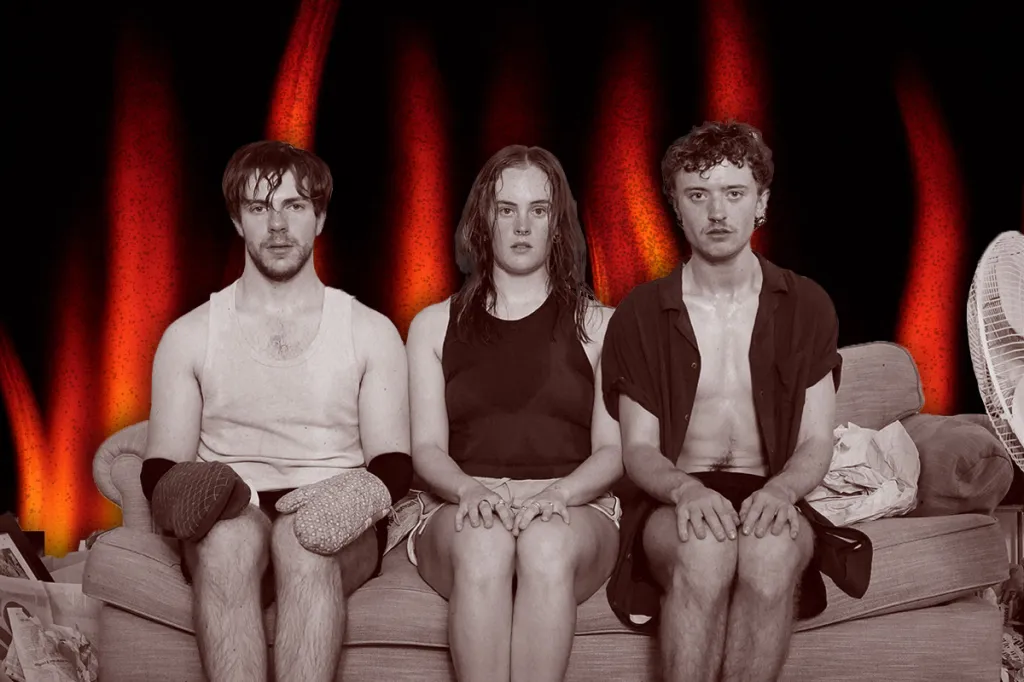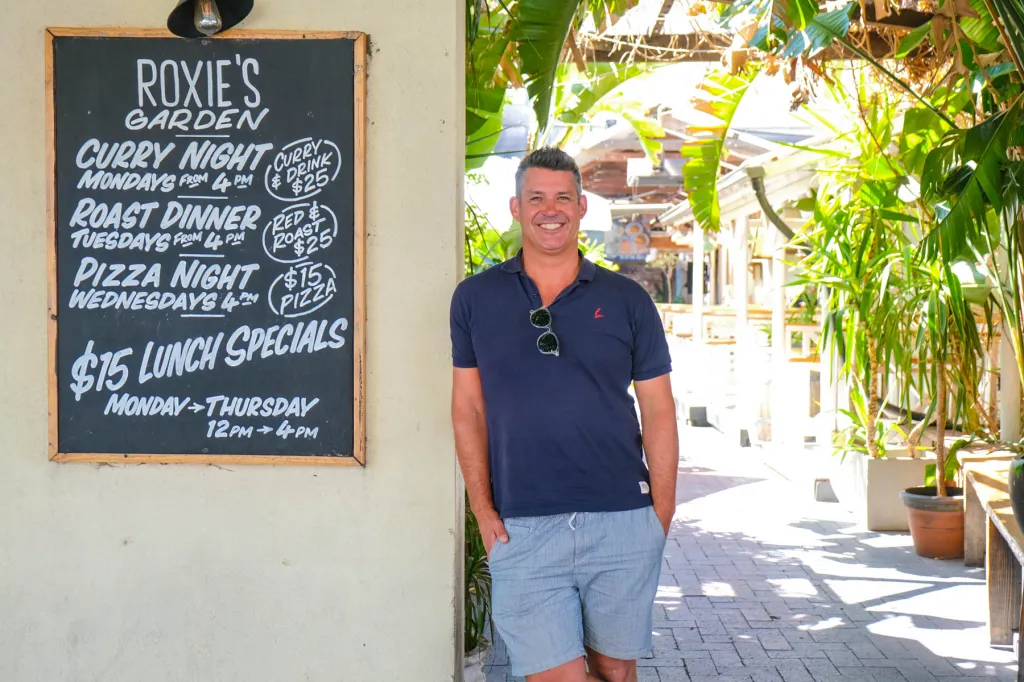It’s festival time in the festival state – but how safe is it?

Mad March is officially upon us, with the Adelaide Fringe and Adelaide Festival in full swing, and WOMADelaide this weekend. As part of our festival prep, CityMag asked the big players: how safe are our festivals, and what goes into keeping them that way?
This time of year, Adelaide comes alive with big tops erected and booze flowing, as punters spill into Rundle Street to get the local bars and restaurants in on the action.
Being a short walk from our office, the bustling big tops and alluring food trucks of Gluttony and the Garden are grounds well-stomped by CityMag. We love wandering down after work or in our lunch breaks to have a nosey and add to our never-ending list of Fringe to-do’s.
And yet we’ve still spent hours rallying our group chats, urging mates or hunting for dates. Not just because we enjoy their company, but because we still have this niggling hesitation in the back of our minds: it’s scary going out alone.
The Garden of Unearthly Delights Head of Operations, Alison Neville, says that while she understands feeling hesitant about big crowds when you’re on your own, she encourages people to visit the Garden by themselves.
“Experiencing the Adelaide Fringe itself and the arts… Obviously, it’s a very sociable place and people come here to socialise with friends and family, and I think it’s also a really amazing thing that you could do by yourself,” Alison says.
So, what goes into making a festival safe for punters and event staff?
Gender representation
Alison has worked in the industry for over 15 years and has seen a larger female presence over time in event coordination.
“I think Australia is in the forefront of that push for females in the event industry and I think it has a huge impact,” she says.
“I think it’s incredibly important and you can tell the difference on a site for sure.”
This year, 11 of the 20 people on the Garden’s management team identify as non-male, with high numbers of female, non-binary and queer identifying staff members across all levels of employees.
Equal gender representation was also a priority for the Garden when planning its security. This year, the Garden has contracted the security firm Lima One and has a 50-50 ratio of female to male guards at the Garden.
The Garden has found having a diverse presence of staff and security creates a more approachable environment for reporting should an incident occur.
Preventing sexual harassment in the workplace
You might like
At the end of 2022, legislation was brought in to amend the Sex Discrimination Act 1984 to include a “positive duty obligation” which requires employers to take reasonable steps to prevent and eliminate workplace sexual harassment and discrimination.
While this extends to all businesses, CityMag’s resident sexologist and founding director of On The Cusp Jamie Bucirde says it’s particularly relevant to hospitality and festival spaces.
“If you think of young people, you think of mixing alcohol and drugs and a lack of awareness, unfortunately, the stats of sexual harassment within those venues, and within the festival space is really high,” Jamie says.
“If a business hasn’t got a strong policy, if they haven’t educated their staff, if they don’t have clear reporting structures, or if they brush things under the rug when someone’s reported an incident, they’ll get taken to court and they get charged a lot of money.
“So from a risk mitigation point of view, it’s within the best interest of venues and organisations to do it, but morally it’s the right thing to do because it not only protects staff it protects patrons as well.”
CityMag asked The Garden, Gluttony and WOMAD what steps they take to abide by this positive duty.
WOMADelaide

WOMADelaide 2023 (This picture: credit Wade Whitington)
All staff are required to complete a site and safety induction, which covers unacceptable workplace conduct including discrimination, bullying and sexual harassment.
Volunteers also have general safety briefings, and in 2024, the event is trialling an “Access all Areas” induction by SupportAct which covers sexual harassment, assault and discrimination and bullying.
A spokesperson told CityMag, “WOMAD does not tolerate inappropriate behaviour on-site no matter how large or small, these incidents are taken seriously, and our staff are trained to respond with urgency, caution and care.”
Gluttony

Gluttony entrance (This picture: Johnny von Einem)
All Gluttony full-time staff have had an HR consultant come and do harassment training with them for the last few years, and all Gluttony staff and contractors complete online and in-person inductions and receive copies of policies and procedures.
Gluttony co-director Daniel Michael says “this season the focus was on sexual harassment given the changes in legislation”.
Daniel says Gluttony reinforces the process of incident reporting at these inductions and has trained staff in how to respond sensitively and compassionately.
The Garden of Unearthly Delights

This picture: Jacinta Oaten
All staff members in the Garden are trained on the company’s zero-tolerance policy for harassment. Garden staff are trained to de-escalate an incident, but if staff don’t feel safe intervening, all staff are aware of how to contact supervisors and security to respond quickly.
Alison says the legislative changes didn’t demand much change from their operations, as they already had strong policies in place to prevent harassment in the workplace.
“I find that the arts is always ahead of those government guidelines for these kinds of things,” she says.
“There is a bit of the industry that leads with when it comes to understanding certain rights of safe spaces for people who are non-binary or often find general workplaces a bit more confronting or a bit more unsafe.
Subscribe for updates
“Places like the Fringe Festival are a lot more understanding, and we would tend to have a lot more people coming in working for us who really love it here because they get that safety.”
Positive messaging

Consent poster spotted at the Fringe’s Sidebyside festival at Helen Mayo Park last week. (This picture: On The Cusp)
On The Cusp is an organisation that delivers sexual violence awareness training in the workplace, and Jamie recently delivered this training to the Sidebyside Festival, an Adelaide Fringe event.
Jamie says in the nightlife scene – which has a large culture of drinking and drugs – the emphasis should be on keeping people safe.
“Especially in the hospitality scene which is people facing, that should be the main priority,” she says.
Through On the Cusp, Jamie created induction packs on reporting structures and trained the Sidebyside and Sanctuary staff on recognising and responding to harassment as a staff member.
Sidebyside organisers, Oscar Harding, Elliott Jamie and Henry Jarman told CityMag it was always their intention to bring On The Cusp’s services into the festival to ensure they were “completely across the correct ways to deal with potential harassment or social issues that we’ll experience at the event”.
They also had a series of posters on display around the event to raise social messaging and allow patrons the opportunity to submit testimonies about their party-going experience.
Jamie says having positive messaging at your event encourages reporting.
“Being able to educate staff on what to do and how to act accordingly is really important in terms of mitigating [risk] because if something were to happen the first person that someone who’s experienced [an incident of harassment] goes to is a staff member or security guard,” she says.
What to do if you witness or experience an incident
In Gluttony and the Garden, look for any staff member or security staff. Staff members either have radios or will take you to a radio and will communicate any issues to an appropriate responder or support team.
“If [patrons] feel threatened or concerned, they should remain in the presence of staff or security member,” Daniel says.
At WOMADelaide, there is messaging on public-facing screens around the park that also encourages patrons to talk to the closest security guard, staff member or volunteer if someone is behaving inappropriately. Security guards are the first point of call to assist but in an emergency or critical matter on-site police officers will intervene.
“Any person behaving in a threatening or inappropriate manner (aggressive, riotous, abusive, or insulting actions) towards other patrons or event staff will not be tolerated,” the event’s messaging states.
SA Police (SAPOL) encourage people to approach police or event security to enable them to appropriately assist if needed. If you see any suspicious behaviour call 131 444 or the emergency 000 in the event of an immediate emergency.
Is an incident likely?
Alison says she recalls incidents when the Adelaide 500 overlapped with the Adelaide Fringe, requiring extra briefings and increased security protocols.
While the Adelaide 500 demographic could differ from Fringe fans, Alison says the Fringe itself has a very safe reputation.
SA Police says there is increased risk in event areas and their objectives during festival season are to ensure public safety, prevent crime and theft of personal items and ensure people keep safe on the roads.
“With any major event comes a higher risk of incidents that require a police response, and we urge anyone attending to be respectful, act responsibly and to look out for your friends and family,” Police Commander Superintendent Scott Denny says.
During the Fringe, SAPOL will have an increased presence including foot and bicycle patrols, police horses, dogs and Public Transport Safety Branch members to monitor road users, crowds and manage anti-social behaviour.
The east end precinct is considered a Declared Public Precinct for 12 hours between 6pm to 6am each night during Fringe. This allows SAPOL to perform extra measures including metal detector searches, drug searches and ordering people to leave or banning people from the area if necessary.
“This will help to maintain public safety and order, and to preserve the inclusive, family-friendly nature of the festival,” Superintendent Denny says.
“SAPOL does not condone any racist or abusive behaviour and will not tolerate that as part of the declared public precinct.”
Police will be paying particular attention to the behaviour of patrons and consumption of alcohol, and recommend planning your journey to and from festival events so that you have a safe way there and home.
“Look out for your family and friends at these events, while everyone’s out to have a good time, it’s really important that everyone takes responsibility for each other’s safety.”

